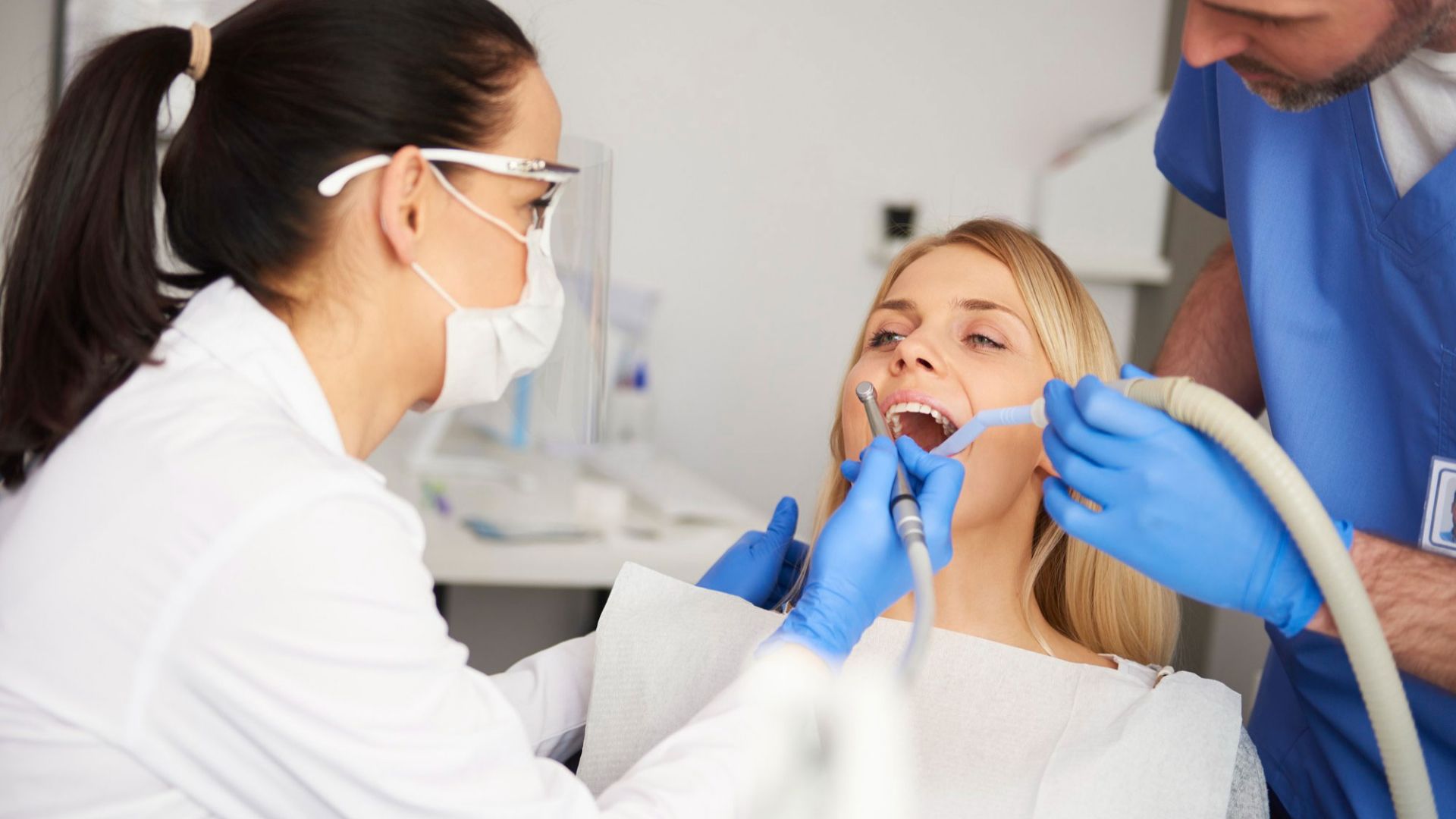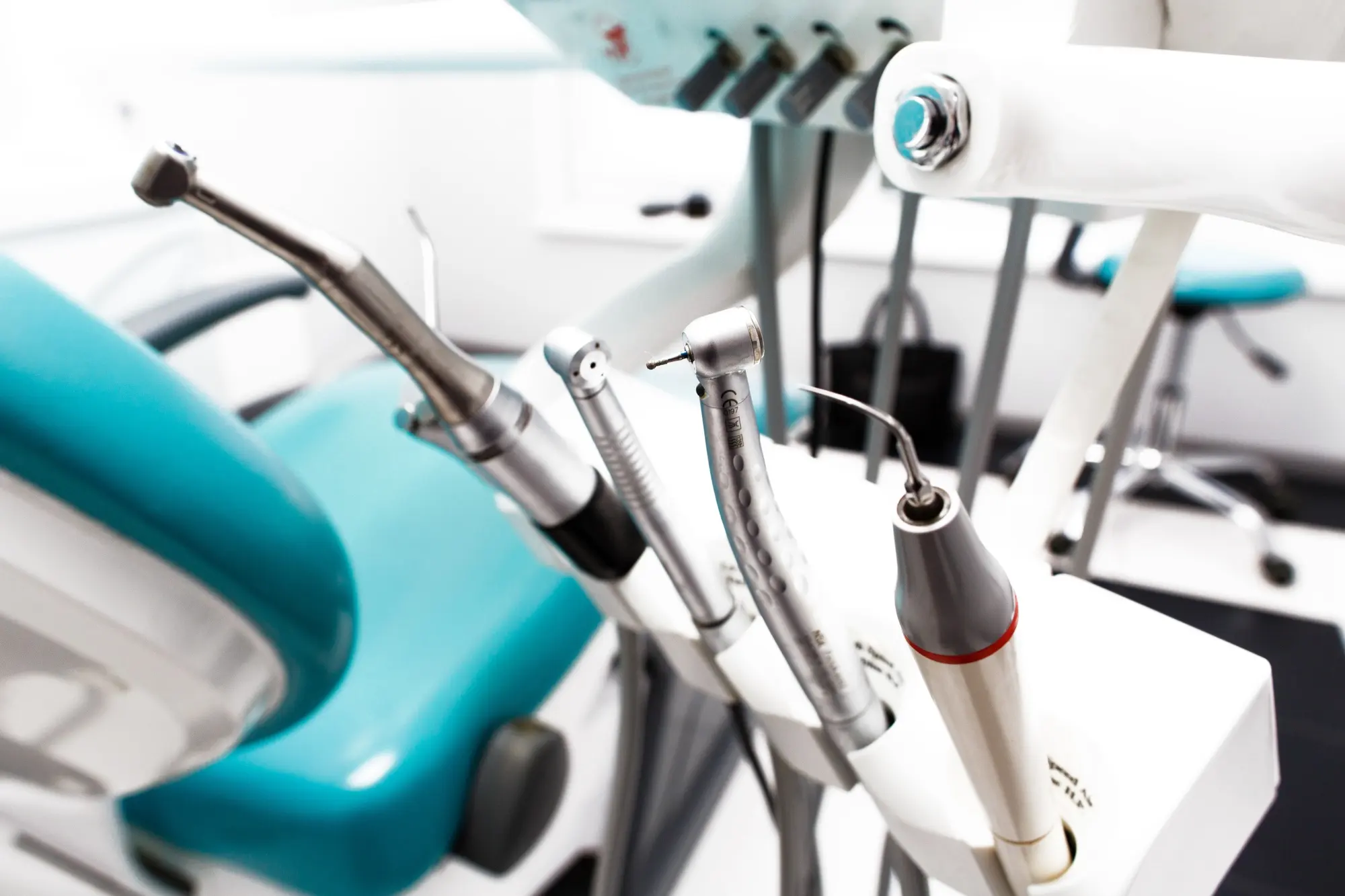What GCSEs Do You Need to be a Dentist? Your Essential Guide

May 23, 2025 | 9 months | By Career
In This Article:
- Why are GCSEs important in dental career pathways?
- How many GCSEs do you need to be a dentist?
- What GCSEs do you need to get a dentistry degree?
- What do you need to enter dental school? Top universities’ entry requirements
- What dentistry degrees are available?
- Further tips & considerations for your dentistry journey
- Where can I study GCSEs?
- Ready to start your dentistry journey? Enrol in CloudLearn’s GCSE online courses!
- FAQs
Becoming a dentist is a rewarding career path that combines science, patient care, and the desire to help others. Did you know that according to a survey by the General Dental Council, over 97% of dentists in the UK are working in the dental sector? This highlights the strong employment prospects for dentists, but also how competitive this area can be. Considering this, starting to plan as early as your GCSEs is essential to begin your career on the right foot. In this guide, we'll explore the GCSE subjects you'll need, why they're important, and how they set the stage for your future studies and career in dentistry.
Why are GCSEs important in dental career pathways?
Choosing your GCSE subjects can feel daunting, especially when you're not entirely sure about your future career. However, for aspiring dentists, certain key subjects will not only give you the foundation you need but also help you stand out in future applications. Dentistry is a highly competitive field, so the earlier you start preparing, the better your chances of success.

How many GCSEs do you need to be a dentist?
Most universities require at least five GCSEs in grades 4-9 (A*-C equivalent), including key subjects like Science, Maths, and English. However, the specific number of GCSEs and the required grades will vary depending on the institution. Top dental schools may require higher grades in core subjects, so strive for the best possible grades.
Fast-track Your Qualification
Get prepped for your exams quicker than you would at school!
Find out more
What GCSEs do you need to get a dentistry degree?
Core Subjects
To pursue a career in dentistry, you'll need to ensure that your GCSEs cover essential subjects that align with the prerequisites for dental school. Here are the most critical GCSEs:
Biology
Why is it important?
Dentistry is rooted in the sciences, and biology is perhaps the most important GCSE subject. A solid understanding of human anatomy, cellular biology, and the body’s processes will be crucial as you progress to higher education.
Recommended levels or grades
Most dental schools require an A or A* in GCSE Biology. Additionally, A-level Biology is often a prerequisite for applying to a dentistry degree program.
Chemistry
Why is it important?
Chemistry is another must-have subject for future dentists. The composition of dental materials, how different substances interact, and even the drugs used for pain management in dental procedures are all rooted in chemistry. In GCSE chemistry, you’ll learn about elements, compounds, and chemical reactions—all of which will play a role when you study biochemistry and pharmacology in your later dental training.
Recommended levels or grades
A high grade (A or A*) in GCSE Chemistry is typically expected, and continuing to study Chemistry at A-level is highly recommended for entry into dental school.
Are Science subjects difficult for you? They don’t have to be! Take a look at this guide about how to study for GCSE science.
Mathematics
Why is it important?
Dentistry requires precise calculations, whether you're measuring materials for a crown or assessing the right dosage for anaesthesia. Strong mathematical skills are essential. At the GCSE level, maths will help you develop the analytical and problem-solving abilities that will later be applied in everything from interpreting data to crafting treatment plans.
Recommended levels or grades
Most dental schools require at least an A in GCSE Maths, and some may also recommend or require an A-level qualification in the subject. If you're an adult just getting familiar with this subject, don't worry, you’re not alone. This article is designed to guide you through the key points and offer some helpful insights.
Struggling with Maths? We’ve been there too. Here’s our guide about how to revise for GCSE Maths.
English Language
Why is it important?
Communication is a key part of being a dentist. You’ll need to explain treatment options clearly to patients, write reports, and perhaps even engage in research or teaching. GCSE English Language equips you with the ability to communicate effectively in writing and speaking.
Recommended levels or grades
An A or B grade in GCSE English Language is typically required by dental schools, with some institutions placing more emphasis on this subject than others.
Get some tips to learn how to study for GCSE effectively.
Recommended Additional Subjects
Based on their interests, students might explore taking extra GCSE subjects that correspond with their intended specialisation's unique requirements.
Physics
Physics can be particularly useful in understanding dental equipment, radiography, and the principles of forces, all of which are important in certain dental procedures. While it is not always a strict requirement, having a background in Physics can give you an edge.
Psychology
Dentistry is as much about understanding people as it is about treating teeth. Psychology can help you understand patient behaviours, and fears, and how to communicate effectively to reduce anxiety in patients who are nervous about dental procedures.
Sociology
Studying Sociology can provide insights into the social factors that affect dental health, such as access to healthcare, socioeconomic status, and cultural beliefs. This knowledge can be particularly valuable for dentists working in community health settings.
A Guaranteed Pass in Your Exams!
CloudLearn are the only UK Online Learning centre to guarantee a pass for our students.
Find out more
What do you need to enter dental school? Top universities’ entry requirements
The entry requirements for dental school can vary slightly depending on the institution, but most universities in the UK have similar expectations when it comes to GCSEs and A-levels. Below is an overview of the entry requirements for some top UK dental schools.
University of Liverpool
At the University of Liverpool, you will need at least five GCSEs at grade 7 (A), including core subjects such as Biology, Chemistry, Maths, and English. Additionally, you will need A-levels in Biology and Chemistry with top grades to be considered for their competitive dentistry program.
University of Birmingham
The University of Birmingham requires students to achieve high grades in GCSE Science subjects, including Biology and Chemistry, as well as Maths and English. A-levels in Biology and Chemistry are also required, with the expectation of A* or A grades.
Cardiff University
Cardiff University expects applicants to have strong GCSE results, particularly in Science and Maths, as well as A-level qualifications in Biology and Chemistry. Additional A-level subjects, such as Maths or Physics, are recommended to strengthen your application.
Queen’s University of Belfast
Queen’s University of Belfast requires a minimum of six GCSEs, including Science, Maths, and English, with top grades in these subjects. A-levels in Biology and Chemistry are essential for applying to their dentistry program.
Queen Mary, University of London
Queen Mary, University of London is one of the leading dental schools in the UK, with a strong emphasis on academic excellence. Applicants should have at least five GCSEs in grades 7-9, including Biology, Chemistry, Maths, and English, and A-levels in Biology and Chemistry with A* or A grades.

What dentistry degrees are available?
There are several pathways you can take in the field of dentistry, each offering a unique focus and career trajectory. Here are some of the most common degrees available.
Dentistry / Dental Surgery BDS
This is the most common route for students who want to become practising dentists. A Bachelor of Dental Surgery (BDS) is a five-year degree program that covers all aspects of oral health, surgery, and patient care. It is the standard qualification required to work as a dentist in the UK.
Dental Therapy and Hygiene BSc
This degree focuses on preventive care, including cleaning teeth, providing fluoride treatments, and educating patients on oral hygiene. Dental therapists and hygienists work alongside dentists to improve patient care.
Dental Technology BSc
Dental technologists design and create dental appliances, such as dentures, crowns, and bridges. This degree combines elements of design, engineering, and health science.
Dental Nurse
A dental nurse works closely with dentists, assisting in patient care and clinical procedures. While not a degree program, there are several qualifications available for those interested in this career path.
Most popular post-graduate dentistry specialisations
After completing a BDS degree, many dentists choose to specialise in a particular area of dentistry. Here are some of the most popular post-graduate specialisations.
Endodontics
This branch focuses on diseases of the dental pulp and root canals, requiring additional training beyond the standard BDS degree.
Oral and Maxillofacial Pathology
Dentists who specialise in this field diagnose and treat diseases of the mouth, jaw, and face.
Oral Surgery
This field provides skills in surgical treatments to improve oral health and function.
Orthodontics
Orthodontists specialise in the alignment of teeth and jaws, often using braces and other corrective devices.
Paediatric Dentistry
This specialisation focuses on the dental care of children, including preventive treatments and managing dental growth.
Prosthodontics
Prosthodontists specialise in dental prosthetics, such as crowns, bridges, and dentures.

Further tips & considerations for your dentistry journey
Becoming a dentist is more than just a career choice it's a journey of dedication, learning, and growth. Master dental science, build patient relationships, and become a trusted, compassionate professional. Stay focused, and embrace the process. Here are some additional tips to help you on your journey.
Consider university entry requirements
Every dentistry school has its own rules for getting in, so you'll need to do your homework. Make sure you know what GCSEs and A-Levels they want, any work experience they require, and if you need to take entrance exams or do interviews.
Extra ways to reinforce your path
Each university has different requirements, so it’s important to research thoroughly before applying. Look into the specific GCSE and A-level grades required, as well as any additional work experience or interviews that may be part of the application process.
A-levels
While your GCSEs lay the foundations of your academic journey, most universities will pay closer attention to your A-levels when reviewing your application. For aspiring dentists, strong A-levels in science subjects—particularly Biology and Chemistry—are essential. These subjects help you grasp the complex biological and chemical principles involved in dental care, from understanding oral health to mastering the science behind treatments. Having top grades in these areas shows universities that you’re ready for the academic challenges of dental school.
Work Experience
Gaining hands-on experience can give your dental school application a big boost. If you’re considering a career in dentistry, look for opportunities to work in dental clinics or shadow professionals. Observing dentists in action, assisting with basic tasks, or even volunteering in a dental care setting can help you get a real sense of the profession.
Extracurricular Activities
While grades are key, extracurricular activities can add an extra layer to your application. Getting involved in initiatives that reflect your passion for healthcare—such as volunteering in community health projects or organising oral health awareness campaigns—can make you stand out. These activities not only show that you're dedicated but also highlight your ability to contribute to the broader field of dental health.
Where can I study GCSEs?
Traditional schools
For younger students, traditional schools remain the go-to option for completing their GCSEs. These institutions offer a structured environment with face-to-face learning, providing a comprehensive education that balances academic preparation with extracurricular activities. This combination supports both exam readiness and personal development, ensuring a well-rounded experience for students.
Night schools
Night schools cater to individuals who need to juggle work and academic responsibilities. Offering a more flexible schedule than traditional schools, these programs allow students to study part-time during the evenings, making it possible to earn GCSEs without interfering with daytime commitments. This structure is ideal for those who require both academic progression and work-life balance.
Homeschool (+ online academies)
Homeschooling GCSEs provides the ultimate flexibility for young learners and adults alike. With platforms like CloudLearn, students can access comprehensive GCSE courses while maintaining full control over their study schedules. Taking online GCSE courses is perfect for those who need to adapt their education to fit personal needs, ensuring they progress at their own pace, with resources and support readily available.
Do you want to find out which subjects are the easiest to ace? Don’t miss out-click this quick guide and get ahead now.
Ready to start your dentistry journey? Enrol in CloudLearn’s GCSE online courses!
Choosing your career path can feel overwhelming, but don't worry - CloudLearn is here to help. If you need help improving your GCSE grades and achieving the results you expect, don't hesitate to check out the courses that CloudLearn has prepared for you.
Count on the help of experts, flexible schedules, and even tips for when you need them most. This way, you'll feel prepared for what's next. Go for it!
Frequently Asked Questions
What GCSE do you need to be a dentist in the UK?
To become a dentist in the UK, you generally need at least 5 GCSEs, including English, Maths, and Science, typically at grade 6 or above.
What are the best GCSE options for dentistry?
The best GCSE options for dentistry include Biology, Chemistry, Physics, and Maths to prepare for further science-focused studies. However, it is highly advisable to review the entry requirements to your desired university, as these may change from one institution to another.
What is the best qualification for a dentist?
The BDS is your ticket into the world of dentistry, but once you're in, the options are limitless! There are branches of dentistry for everyone, from those who love surgery to those who prefer the more artistic side. So, while the BDS is the first step, don't limit yourself, explore and find your place in this exciting field!
How long is a dentistry course in the UK?
A typical five-year dentistry course in the UK, offered by accredited dental schools, equips aspiring dentists with the necessary knowledge and skills to practice dentistry professionally.
Is dentistry harder to get into than medicine in the UK?
Both dentistry and medicine are highly competitive in the UK, but dentistry can be harder to get into due to fewer available spaces. That is why building a strong profile is essential to stand out among other applicants for university entry.